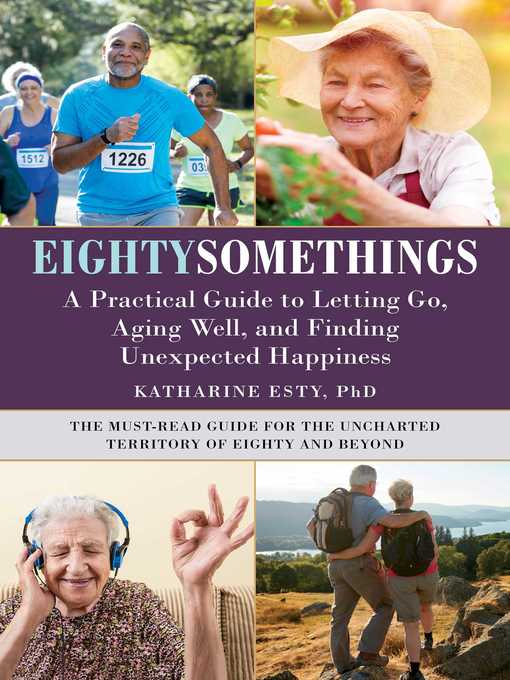
Eightysomethings
A Practical Guide to Letting Go, Aging Well, and Finding Unexpected Happiness
کتاب های مرتبط
- اطلاعات
- نقد و بررسی
- دیدگاه کاربران
نقد و بررسی

October 1, 2019
Both of these books posit that people can thrive during late life. In Eightysomethings, social psychologist Esty interviews 120 seniors leading fulfilling lives, classifying them as deniers, complainers, worriers, stoics, and realists--demarcations that, she explains, are helpful for families wishing to build relationships with their elders. The author further provides engaging conversation starters for families at the end of each chapter.
Getting Good at Getting Older, from Siegel (The Jewish Catalog) and rabbi Geller, offers a "how to" on aging, using the "best practices" from Eightysomethings to generalize aspects of aging common to all. In addition to discussing the more positive benefits of gaining gratitude, the authors address giving up one's driver's license and having the last word in funeral planning, while supplying a wealth of tools and resources for everything from coping with illness to leaving a legacy. VERDICT Both titles are recommended for filling a gap in the aging literature, with Eightysomethings catering to a definite niche audience, and Getting Good for anyone over 60.
Copyright 2019 Library Journal, LLC Used with permission.

October 15, 2019
There's a difference between being 70 and being 80, according to psychologist Esty. While many 70-year-olds are able to continue lifelong physical and mental pursuits, turning 80 seems to slow them down. Esty, who is 80 herself, spent three years talking to seniors with varying lifestyles about such important topics as health, sexuality, loss, and family. Some say that their new, pared-down lives are happier without responsibilities, schedules, and ambitions; others miss their formerly hectic lives. Some have learned to live in the present and be grateful for each day; others grieve for lost family, friends, and freedom. Most agree that it's a time of letting go and surviving. It turns out that octogenarians are just as varied as any other segment of the community. And they have the same needs: to feel useful and loved. Esty gives readers invaluable insight into the minds of the aging, urging family members to talk to their parents and grandparents (aided by lists of conversation starters and other tips) and to respect their needs and wants.(Reprinted with permission of Booklist, copyright 2019, American Library Association.)

























دیدگاه کاربران